One God, Three Entities Part One
Editor’s Note: In studying the Old Testament, many people ask, “What does the Hebrew actually say?” This article is the first in a series that confirms the existence of a single, triune God based on the Hebrew Scriptures. The author, Meno Kalisher, is a native Israeli who lives in Jerusalem and is the senior pastor of the Jerusalem Assembly House of Redemption. He will explain what the Hebrew Bible actually says and, more important, what it means.
The prayer of the Shema (“Hear, O Israel,” Dt. 6:4) has always been the fundamental declaration of faith of the Jewish people and the State of Israel. In one short verse, Moses presented a great truth about the Godhead as a whole. This Scripture is inscribed on parchment scrolls and placed in mezuzot (wooden or metal cases) that are fixed onto the doorposts of every home in Israel. It is a verse that calls the people of Israel to serve and worship one God:
Hear O Israel: The Lᴏʀᴅ our God, the Lᴏʀᴅ is one (Dt. 6:4, Masoretic text).
The Hebrew Bible actually reads, “Shema Yisrael, Yehovah [ʏʜᴠʜ] Eloheinu, Yehovah [ʏʜᴠʜ] Ehad.” Jewish people, however, do not say the word Yehovah for fear of taking the Lord’s name in vain. Instead, they substitute the words Adonai, Hashem (“the Name”), Elohim, or Adoshem. The spoken Shema is usually, “Shema Yisrael, Adonai Eloheinu, Adonai Ehad.”
The Hebrew words Adonai (“Lord”) and Eloheinu (“our God”) use plural forms of the word God. The word Eloheinu is a combination of Elohim shelanu, meaning “our God.” The Word Elohim is the plural form of the word Elohah.
Why does the Lord present Himself as plural? And why, after repeating the word God three times, does Deuteronomy 6:4 end with the word one?
To understand the verse better requires examining the meaning of the Hebrew word ehad (“one”) in the Old Testament.
Examples of Ehad
(1) “So the evening and the morning were the first day” (Gen. 1:5).
The Hebrew actually says “one” (ehad) day rather than “the first” day. Morning and evening are two nouns that follow each other and, together, constitute one day. Ehad is the union of morning and evening.
(2) “Therefore a man shall leave his father and mother and be joined to his wife, and they shall become one [ehad] flesh” (2:24).
A man and a woman are two separate people whose joining together creates one flesh.
(3) “The whole [ehad] assembly together was forty-two thousand three hundred and sixty” (Ezra 2:64; cf. Neh. 7:66).
The “whole” (ehad), meaning 42,360 individuals gathered together, constituted one assembly.
The word ehad does not necessarily refer to a single, individual item. It also may mean a combination of items that constitutes a complete whole. The Hebrew language uses a different word to describe an undivided unity. That word is yahid.
Plural Words for God
To whom was the Lord speaking in Genesis 1:26?
Then God said, “Let Us make man in Our image, according to Our likeness; let them have dominion over the fish of the sea, over the birds of the air, and over the cattle, over all the earth and over every creeping thing that creeps on the earth.”
He was not speaking to human beings because they were not yet created. Neither did He consult with the angels, because angels were not active partners in creation. The Old Testament states clearly that God alone created the world:
You alone are the Lᴏʀᴅ; You have made heaven, the heaven of heavens, with all their host, the earth and everything on it, the seas and all that is in them, and You preserve them all. The host of heaven worships You (Neh. 9:6).
When God interrogated Job, He asked, “Where were you…when the morning stars sang together, and all the sons of God shouted for joy?” (Job 38:4, 7). God was telling Job that when He created the universe, the angels shouted to Him for joy.
The New Testament strongly confirms that God alone is the Creator:
For by Him all things were created that are in heaven and that are on earth, visible and invisible, whether thrones or dominions or principalities or powers. All things were created through Him and for Him. And He is before all things, and in Him all things consist (Col. 1:16–17).
Therefore, in Genesis 1:26 the Lord was speaking to an entity or entities equal to Himself in image and in power to create.
King Solomon, the wisest man who ever lived, summarized the essentials of human life by saying, “Remember now your Creator in the days of your youth, before the difficult days come, and the years draw near when you say, ‘I have no pleasure in them’” (Eccl. 12:1).
The word Creator appears in Hebrew in the plural form, indicating a plurality of Creators. Since the Creator is God, there must be a plurality of entities in the one true God.
Plural forms of words referring to God also appear in Isaiah 54:5 (“For your Maker is your husband, the Lᴏʀᴅ of hosts is His name”) and Psalm 149:2 (“Let Israel rejoice in their Maker”). In both cases, the word Maker is plural, as is the word husband.
Thus the word ehad describes a wholeness that consists of several entities. The Shema of Deuteronomy 6:4 says that God is one whole who consists of several entities and that the people of Israel must worship this wholeness.
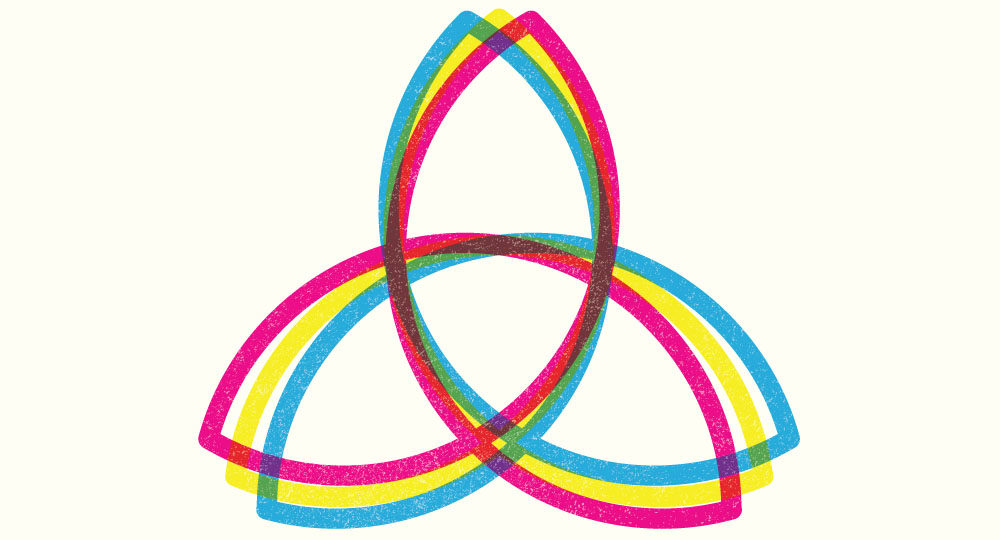

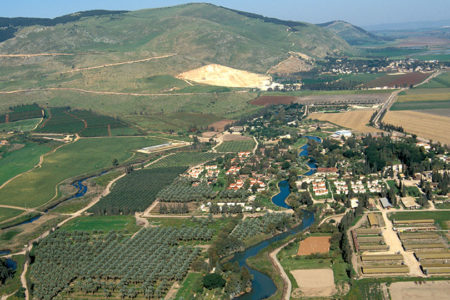
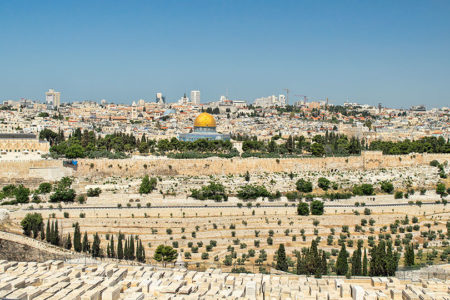
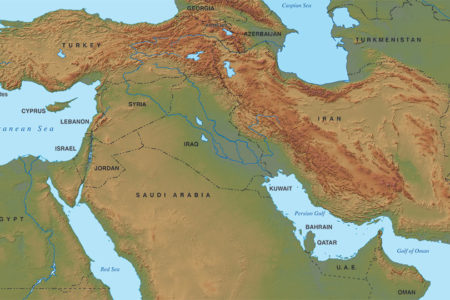
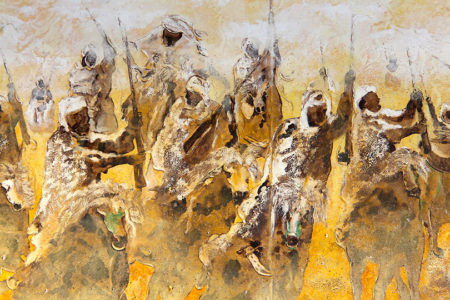


I have been Bar-Mitzvahed and confirmed ias a Jew and currently am studying the Bible from Genesis through Revelations. I study with the Jehovah Witnesses; however, I profess NO religion, but only to know my Lord, Our Lord and Maker. It seems to me blasphemous that mankind has taken more lives in the name of God than for any other purpose. Yet it shows HOW IMPORTANT mankind feels about his maker. Christianity uses the Trinity to explain the Lord being one, and to which I feel somewhat partial towards; although the Lord, Jehovah, as a spiritual, SINGLE entity is common to both Judaism and the former said Christian religions. Probably all of the sects. Though I know better than to profess that I truly know. Christ, the Messiah, and in human form certainly is another; however, my take on the Messiah is that He is representing the truly highest spiritual man—- a goal for any and all of each man an woman. This being said, the Christ is, in my opinion, a first creation of the Lord, and representing the truly Divine being, and one so touched that He gave His life to save the rest of us in a quest for mankind’s hope to attain true knowledge of the Bible so that we might have a chance to Be forever, in the heart of Jehovah, and to take up residence here upon this Earth, or, and again, in my opinion, as possible residence on a new Earth that exists elsewhere, and at a time when disease as death shall be no more and conquerable, and through our GOD GIVEN brains which might enlighten us on these matters on how to do so with the help of the one Jehovah and his infinite wisdom, guidance and power. Which IS the third “entity”…. His enlightenment and POWER to do thes things… known as Holy Spirit. But than again, who am I to ramble on about such matters that are kept from even the most powerful and the most enlightened persons on this planet? Jehovah’s active force went “to and fro” creating us as well as the entire universe. His Holy Spirit, his ACTIVE TANGIBLE force. I believe that we were made for him. In fact every time any of us speaks to Him, an area in our frontal cortex in each one of our brains “lights up”, almost as if we are ALL hard-wired and MADE TO PRAY TO HIM. I have considered knowing all, being everywhere, and existing forever. And one who truly believes and considers forever? Better have companionship. Both divine and somewhat equal who lives eternally (as I believe Christ is), and creations who have the freedom to do as they choose. For wouldn’t it be terrible to exist forever and have nothing to keep you on your toes. Without free will, Jehovah would know everything, and might He have created us to literally have that free will? That way our love can surprise Him and cause Him to be happy. And those who commit the most heinous of sins can have the chance to repent and know him and quite possibly be a source of satisfaction for Him? Again, I have no idea as to the truest nature of anything. But it is always a blessing to think and to love my Creator.
Eager to know “the wholeness I sometimes refer to as “Pappa”
I have struggled with this concept for most of my life. For the last 10 years, I have been diligently seeking confirmation and clarity of the Triune God. Seeing the Hebrew explained here is enormously helpful and reassuring for my faith. Thank you ever so much!
Thank You for this eye-opening article.
Is wonderful to read articles about the Bible from native Hebrew-speaking writers.
Most Excellent Sir. I have been Teaching on this very thing for some time now including very recently and I’ve been expressing the same thing as You here Sir. However I needed some clarification on the term Eloheinu, and Your writing here Blessed me & absolutely clarified it to my confirmation & joy. ThankYou ThankYou ThankYou Sir & God Bless You In JESUS Name ✡⚕✝️
You have made a great work man of God.
If possible I need mentorship on Hebrew learning.